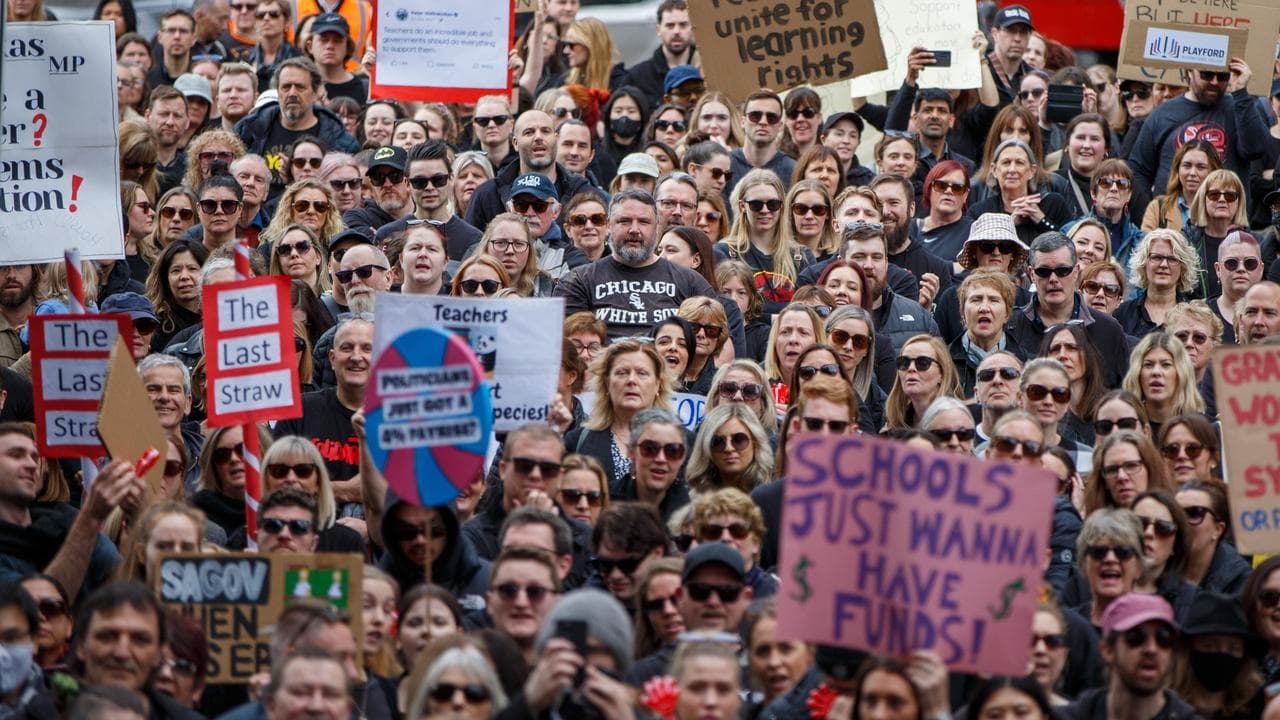
A long-running pay dispute between South Australian teachers and the state government appears to be over after its latest offer won the approval of the union.
The Australian Education Union on Monday night recommended its members accept the four-year, 13 per cent wage increase in a ballot due to take place this week.
The news will come as a relief to parents after two disruptive strikes and three months of at times bitter negotiations.
"The offer we received today makes several improvements to key measures of our platform and represents the largest-ever investment in a South Australian education Enterprise Agreement," SA branch president Andrew Gohl said.
Relations between the two parties broke down in November after Mr Gohl accused the government of treating teachers with "contempt" over an offer he said would leave teachers worse off.
It prompted thousands of teachers to walk off the job and march on state parliament to demand better pay and improved workload conditions, including a quicker pathway to reduced teaching hours.
The latest offer will take SA educators from Australia’s lowest paid to closer to the national midpoint, Mr Gohl said.
Crucially, a negotiated one hour workload reduction will take effect from 2028, one year earlier than the government had previously said was needed to avoid workforce shortages.
The government had done its best to address the union's two main priorities of salary and workload, Education Minister Blair Boyer said.
"We have made a really good fist, I think, of trying to tackle those in a way that will actually make a legitimate difference to our staff, but also in a way that is actually sustainable for the state budget into the long term," he told reporters on Tuesday.
The new deal will see teachers receive a pay rise of four per cent in their first year, and three per cent in the subsequent three years, compared to the previous three-year offer of four per cent, three per cent and 2.5 per cent.
Teachers will also see their workloads reduced with easier access to disability funding.
The enterprise agreement must still clear the final hurdle of a union member vote but it is unlikely to fail given the support of the executive.




